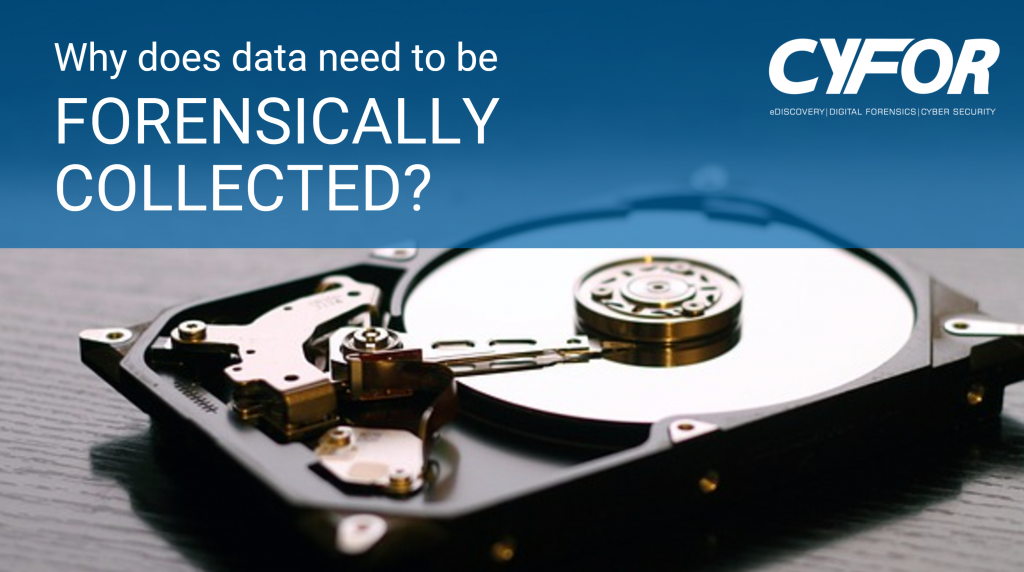Why does data need to be forensically collected?

Why does data need to be forensically collected?
Forensically collected data is crucial within eDiscovery and digital forensic investigations. Allowing IT departments to perform an in-house, forensically unsound data collection could potentially jeopardise a legal eDiscovery exercise when presenting evidence in court.
Should your client not be willing to instruct a provider to manage a disclosure exercise, then you could leave yourselves open to criticism by the court and the opposing party. CYFOR always advise clients to allow for forensically collected data during an eDiscovery matter. This is the only way to preserve the metadata within the documents, which can be extensive in volume.
What is Metadata?
Metadata is the information generated within a piece of electronic data and is effectively the ‘data about the data’. Metadata exists within every digital item and physical devices such as your computer and smartphone. Preserving the metadata is critical within eDiscovery and civil litigation exercises. Failure to do so would allow the opposing side to challenge your eDisclosure process and/or accuse your client of having fraudulently created documents.
If we have a forensically collected copy of the data, then we would be able to defend your disclosure process in a court of law. This would confirm that all documents are legitimate, which nobody would be able to do should your client do the searches themselves.
Forensic Methodology
CYFOR adopt the methodology of ‘collect wide, review narrow’ to ensure that no evidential data is missed. By following this process, you eliminate the risk of the opposing side accusing you of not having reviewed or disclosed all relevant information. If you allow your client to review the data before you do, then they would be able to withhold potentially relevant information. This may be detrimental as this can be challenged by the opposing side in court.
Incurring Further Costs
We have experienced cases where corporates have tried to do searches themselves. Ultimately, they ended up instructing CYFOR to repeat the work under forensic protocols, as nobody could confirm that they had, in fact, conducted a sufficient search of the data. It is, therefore, more cost and time effective to get a third party involved as soon as you reach the disclosure stage.
It is also worth mentioning that it may, in fact, be cheaper to outsource, as opposed to conducting a linear review of the documents. If thousands of documents are involved, deadlines can be missed without having a more efficient way of reviewing the data. Secondly, it would take significantly longer to review manually, which would increase legal costs.
Online Review Platforms
Online document review platforms are powerful and indispensable tools within the eDisclosure process. They effectively manage vast amounts of electronically stored information (ESI) in litigation and dispute resolution. They allow you to search across datasets to quickly identify, organise and tag documents, which reduce overall review time and drastically reducing costs. CYFOR utilise the latest technology platforms such as Relativity to perform advanced eDiscovery investigations.
Call us today and speak with a Forensic Specialist
Send an enquiry to our experts
After submitting an enquiry, a member of our team will be in touch with you as soon as possible
Your information will only be used to contact you, and is lawfully in accordance with the General Data Protection Regulation (GDPR) act, 2018.
